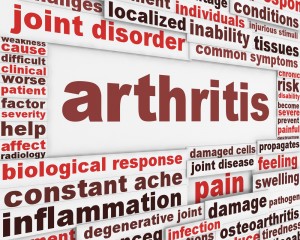-
 Minnesota
MinnesotaLower GI Problems Plague Many With Rheumatoid Arthritis, Mayo Clinic Study Finds
ROCHESTER, Minn. — April 3, 2012. Add lower gastrointestinal (GI) problems such as ulcers, bleeding and perforations to the list of serious complications facing many rheumatoid arthritis patients. They are at greater risk for GI problems and gastrointestinal-related death than people without the disease, a Mayo Clinic study shows. Researchers say their findings point out the need for new ways to prevent and treat lower GI disease in rheumatoid arthritis patients; the incidence of lower gastrointestinal complications is rising even as upper GI problems decrease significantly among rheumatoid arthritis patients.

Smoking, the use of steroids known as glucocorticoids, prior upper GI disease and abdominal surgery were associated with lower GI problems in rheumatoid arthritis patients, the study found. The research was published online this week in The Journal of Rheumatology.
Rheumatologists have long recognized that rheumatoid arthritis patients are at higher risk for upper GI problems such as stomach ulcers and bleeding. The study suggests increased awareness of that and likely, modern treatment strategies that emphasize the need to prevent ulcers and bleeding and control rheumatoid arthritis without relying as much on nonsteroidal drugs and corticosteroids have reduced upper GI complications, says co-author Eric Matteson, M.D., Chair of the Department of Rheumatology at Mayo Clinic in Rochester.
"What we are also seeing for the first time in a systematic way is that patients with rheumatoid arthritis also are at risk for problems of bleeding and ulcers in the lower gut, especially the colon," Dr. Matteson says.
Lung disease, heart problems, osteoporosis and carpal tunnel syndrome are among other potential complications for patients with rheumatoid arthritis, an often debilitating disorder in which the immune system attacks tissues, inflaming joints. To study the incidence of GI problems in rheumatoid arthritis
patients, Mayo researchers identified 813 patients with rheumatoid arthritis and 813 without it, using data from 1980-2008 in the Rochester Epidemiology Project, a National Institutes of Health-supported effort in which Mayo and other Olmsted County, Minn., health care providers pool medical records.
The incidence of upper GI problems in rheumatoid arthritis patients declined over the years but was still higher in that group: 2.9 for every 100 person years compared with 1.7 in non-rheumatoid arthritis patients. The rate of lower GI problems in rheumatoid arthritis patients was 2.1, compared with 1.4 in others, the study found. Of the arthritis patients studied, 229 died. GI problems were significantly associated with their deaths, including bleeds, perforations and obstructions.
"Our findings emphasize that physicians and patients must be vigilant for these complications, which can occur without causing abdominal pain," Dr. Matteson says. "Especially stopping smoking and reducing the use of corticosteroids would appear to be important in reducing the risk of major lower GI complications."
The study co-authors are biostatistician Cynthia Crowson; gastroenterologist Nicholas Talley, M.D., Ph.D.; and Elena Myasoedova, M.D., Ph.D., all of Mayo Clinic.
###
About Mayo Clinic:
Recognizing 150 years of serving humanity in 2014, Mayo Clinic is a nonprofit worldwide leader in medical care, research and education for people from all walks of life. For more information, visit 150years.mayoclinic.org, www.mayoclinic.org and newsnetwork.mayoclinic.org.
Media Contact: Sharon Theimer, 507-284-5005 (days), newsbureau@mayo.edu







